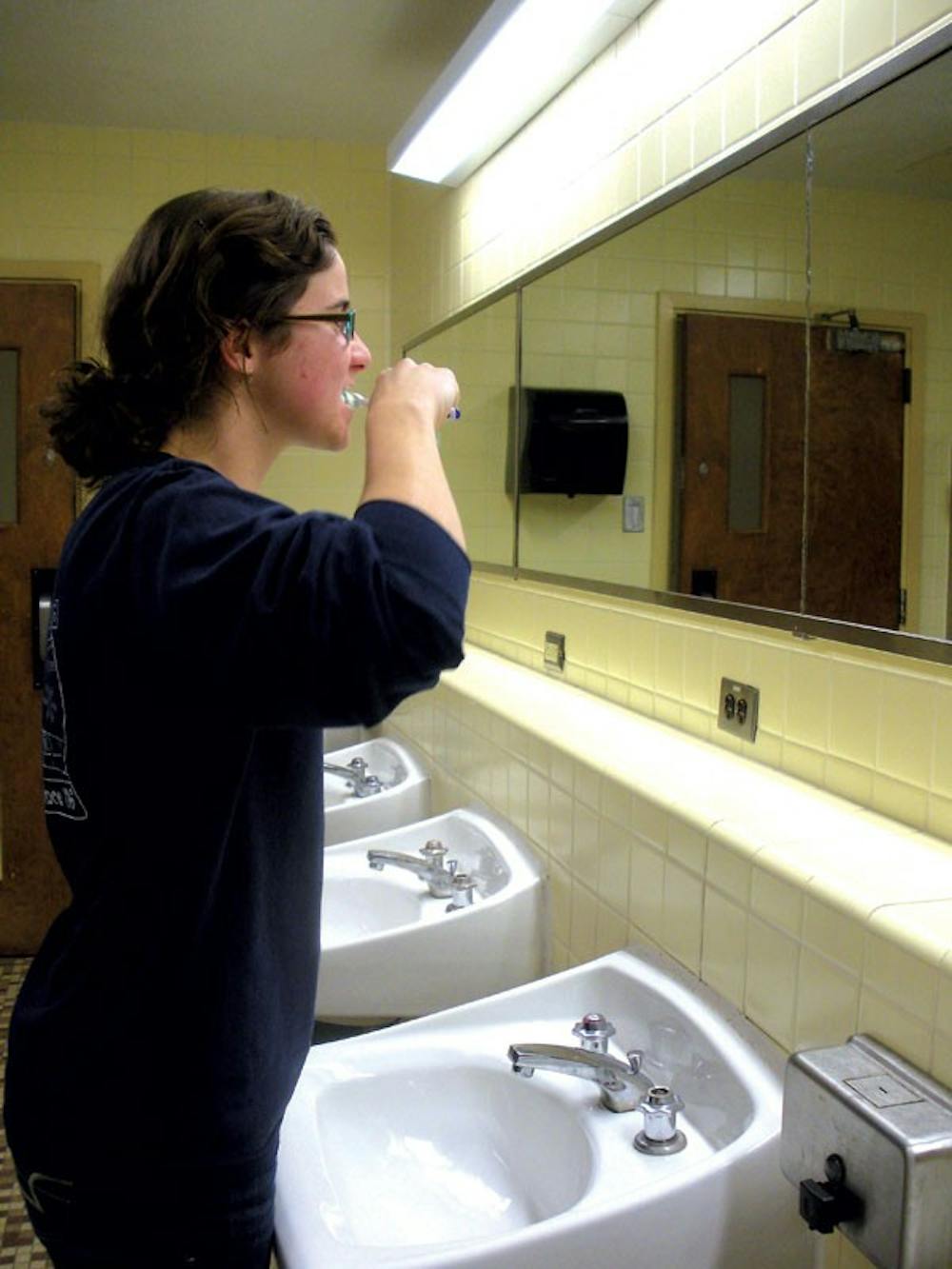
First-year Gabby Trojanowski does her part during Unplugged, Untapped, Game On! by turning off the water while brushing her teeth Wednesday at Emerson Hall. (SAMANTHA LUDINGTON | The Miami Student)
Miami University received its highest mark ever on the 2011 college sustainability report card provided by the Sustainable Endowments Institute. The grade, a B-, is an improvement from the C+ Miami received every year since 2008.
The school earned A's in food and recycling and investment priorities, and B's in a handful of other categories, including climate change and energy, green building, student involvement and endowment transparency.
Sustainability Coordinator David Prytherch said the improvement is a big feat for Miami.
"At Miami University, a B- is not a grade many people may get excited about, but this really is very exciting," Prytherch said.
The sustainability grading is conducted through a multi-part questionnaire the university receives in the summer. Each of the four parts — campus, dining, endowment and students — are completed by people knowledgeable in those areas, according to Prytherch.
While sustainability surveys are conducted by many organizations, including the Sierra Club and the Princeton Review, the survey conducted by the Sustainable Endowments Institute is the gold standard, Prytherch said.
Miami received an F rating in the shareholder engagement category, along with 35 percent of all schools included in the study, according to data on the Sustainable Endowments Institute website.
This category deals with how universities use the proxy votes they receive in return for their investments in companies.
When schools use their proxy votes to encourage green policymaking or to propose new green initiatives, they get higher scores in this category, said Rebecca Cain, a senior research fellow for the Sustainable Endowments Institute.
Many schools, like Miami, simply leave their votes in the hands of their investment managers, who may or may not make eco-conscious decisions.
Enjoy what you're reading?
Signup for our newsletter
Cain said the endowment category is the toughest category for most schools.
She said colleges can raise their mark in this area by establishing shareholder responsibility committees that guide the schools' investment managers to make eco-conscious decisions.
Additionally, Prytherch said details are already beginning to be worked out to improve Miami's C rating in transportation through attempts to make the already pedestrian-friendly campus better for walkers and bikers in the future.
Miami received a B in student involvement for the last few years. This can be attributed to student participation in Housing, Dining and Guest Services' Unplugged, Untapped, Game On! competition, as well as student organizations like Green Oxford.
Chase Yeakley, vice president of projects for Green Oxford, was pleased with the university's improvement. The organization recently successfully petitioned for outdoor recycling bins around campus and is working on a project to promote campus composting, Yeakley said.
According to Cain, schools also raise this grade by implementing more programs related to sustainability. She said a remarkable increase in bottled water bans and tray-less dining initiatives have been implemented in schools across the country.
There is a list on the institute's website of other programs it recommends schools implement.
Miami's report card can be found at http://www.greenreportcard.org/report-card-2011/schools/miami-university.




